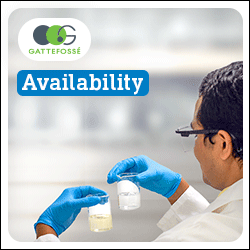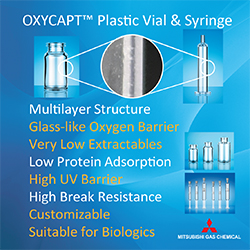Crinetics Pharmaceuticals Reports Positive Top-line Results Including Strong Adrenal Suppression from CRN04894 Phase 1 Study Multiple-Ascending Dose Cohorts
Crinetics Pharmaceuticals, Inc. recently announced positive results from the multiple-ascending dose (MAD) portion of a first-in-human Phase 1 clinical study of CRN04894, the company’s first-in-class, investigational, oral, nonpeptide adrenocorticotropic hormone (ACTH) antagonist that is being developed for the treatment of Cushing’s disease, congenital adrenal hyperplasia (CAH) and other conditions of excess ACTH. Following administration of CRN04894, results showed serum cortisol below normal levels and a marked reduction in 24-hour urine free cortisol excretion in the presence of sustained, disease-like ACTH concentrations.
“The design of our Phase 1 healthy volunteer study allowed us to demonstrate CRN04894’s potent pharmacologic activity in the presence of ACTH levels that were in similar range to those seen in CAH and Cushing’s disease patients,” said Alan Krasner, MD, Crinetics’ Chief Medical Officer. “The observation of dose-dependent reductions in serum cortisol levels to below the normal range even in the presence of high ACTH indicates that CRN04894 was effective in blocking the key receptor responsible for regulating cortisol secretion. We believe this is an important finding that may be predictive of CRN04894’s efficacy in patients.”
ACTH is the key regulator of the hypothalamic-pituitary adrenal (HPA) axis controlling adrenal activation. It is regulated by cortisol via a negative feedback loop that acts to inhibit ACTH secretion. This feedback loop is dysregulated in diseases of excess ACTH. In Cushing’s disease, a benign pituitary tumor drives excess ACTH secretion even in the presence of excess cortisol. While in CAH, an enzyme deficiency results in excess androgen synthesis without normal cortisol synthesis, allowing unchecked ACTH production and requiring lifelong glucocorticoid use. In both diseases, excess ACTH drives over-stimulation of the adrenal gland and leads to a host of symptoms including infertility, adrenal rest tumors, and metabolic complications in CAH and, in Cushing’s disease, symptoms include hypertension, central obesity, neuropsychiatric disorders and metabolic complications. To our knowledge, no other ACTH antagonists are currently in clinical development for diseases of ACTH excess such as Cushing’s disease or CAH.
The 49 healthy adults evaluated in the multiple ascending dose portion of the Phase 1 study were administered 40, 60 or 80 mg doses of CRN04894, or placebo, daily for 10 days. After 10 days of dosing was complete, evaluable participants were administered an ACTH challenge to stimulate adrenal activation to disease relevant levels. Safety and pharmacokinetic data were consistent with expectations from the single-ascending dose cohorts in the Phase 1 study. There were no discontinuations due to treatment-related adverse events and no serious adverse events reported. Glucocorticoid deficiency was the most common treatment-related adverse event in the MAD cohorts. This was an expected extension of pharmacology given the mechanism of action of CRN04894. CRN04894 showed consistent oral bioavailability in the MAD cohorts with a half-life of approximately 24 hours, which is anticipated to support once-daily dosing.
Participants in the MAD cohorts who were administered once nightly CRN04894 experienced a dose-dependent suppression of adrenal function as measured by suppression of serum cortisol production of 17%, 29% and 37% on average from baseline over 24 hours for the 40, 60 or 80 mg dosing groups respectively, (despite requirement for glucocorticoid supplementation in some of these subjects to prevent clinical adrenal insufficiency), compared to an average 2% increase in serum cortisol for individuals receiving placebo. The strong, dose-dependent suppression of serum and urine free cortisol was achieved despite ACTH levels in subjects in the 60 and 80 mg cohorts similar to those typically seen in patients with CAH and Cushing’s disease. Even when an additional exogenous ACTH challenge was administered on top of the already increased ACTH levels, cortisol levels remained below the normal range in subjects receiving CRN04894, indicating clinically significant suppression of adrenal activity.
“Due to its central position in HPA axis, ACTH is the obvious target for inhibiting excessive stimulation of the adrenal in diseases of ACTH excess. Even though the field of endocrinology has known about its clinical significance for more than 100 years, we are not aware of any other ACTH antagonist that has entered clinical development. This is an important milestone for endocrinology and for our company.” said Scott Struthers, PhD, founder and Chief Executive Officer of Crinetics. “We are very excited to initiate patient studies in Cushing’s disease and CAH with CRN04894, which will be our third home-grown NCE to demonstrate pharmacologic proof-of-concept and enter patient trials.”
Crinetics plans to present additional details of safety, efficacy, and biomarker results from the CRN04894 Phase 1 study at an endocrinology-focused medical meeting in 2022.
Crinetics has completed enrollment of the 88 healthy volunteers in this double-blind, randomized, placebo-controlled Phase 1 study. Participants were divided into multiple cohorts in the single ascending dose (n=39) and multiple ascending dose (n=49) portions of the study. In both the SAD and MAD portions of the study, safety and pharmacokinetics were assessed. In addition, pharmacodynamic responses were evaluated before and after challenges with injected synthetic ACTH to assess pharmacologic effects resulting from exposure to CRN04894.
Adrenocorticotropic hormone (ACTH) is synthesized and secreted by the pituitary gland and selectively binds to its receptor melanocortin type 2 receptor (MC2R), which is selectively expressed in the adrenal gland. This interaction of ACTH with MCR2 activates the adrenal and results in production of cortisol, a stress hormone that is involved in the regulation of many physiologic systems. These include the regulation of blood sugar levels, metabolism, inflammation, blood pressure, and memory formulation. Diseases associated with excess of ACTH, therefore, can have significant impact on physical and mental health. Cushing’s disease is characterized by chronically elevated cortisol levels caused by tumors that secrete excess ACTH and do not respond to negative feedback by even elevated glucocorticoid levels, resulting in hypertension, central obesity, neuropsychiatric disorders, and metabolic complications among other troubling symptoms. Congenital adrenal hyperplasia is caused by an enzyme deficiency in the normal cortisol synthesis pathway, resulting in a shunting of precursors to the formation of excess adrenal androgens. Excess adrenal androgen production can result in hirsutism, menstrual dysfunction, infertility in men and women, acne, cardiometabolic comorbidities and insulin resistance. Crinetics’ ACTH antagonist, CRN04894, has exhibited strong binding affinity for MC2R in preclinical models and demonstrated suppression of adrenally derived glucocorticoids and androgens that are under the control of ACTH.
Crinetics Pharmaceuticals is a clinical-stage pharmaceutical company focused on the discovery, development, and commercialization of novel therapeutics for rare endocrine diseases and endocrine-related tumors. The company’s lead product candidate, paltusotine, is an investigational, oral, selective nonpeptide somatostatin receptor type 2 (SST2) biased agonist for the treatment of acromegaly, an orphan disease affecting more than 26,000 people in the US. A Phase 3 clinical program in acromegaly with paltusotine is underway. Crinetics Pharmaceuticals is also developing paltusotine for the treatment of carcinoid syndrome associated with neuroendocrine tumors. The company is developing CRN04777, an investigational, oral, nonpeptide somatostatin receptor type 5 (SST5) agonist for congenital and other forms of hyperinsulinism, as well as CRN04894, an investigational, oral, nonpeptide adrenocorticotropic hormone (ACTH) antagonist for the treatment of congenital adrenal hyperplasia, Cushing’s disease and other diseases of excess ACTH. All of the company’s drug candidates are new chemical entities resulting from in-house drug discovery efforts.
Total Page Views: 824













